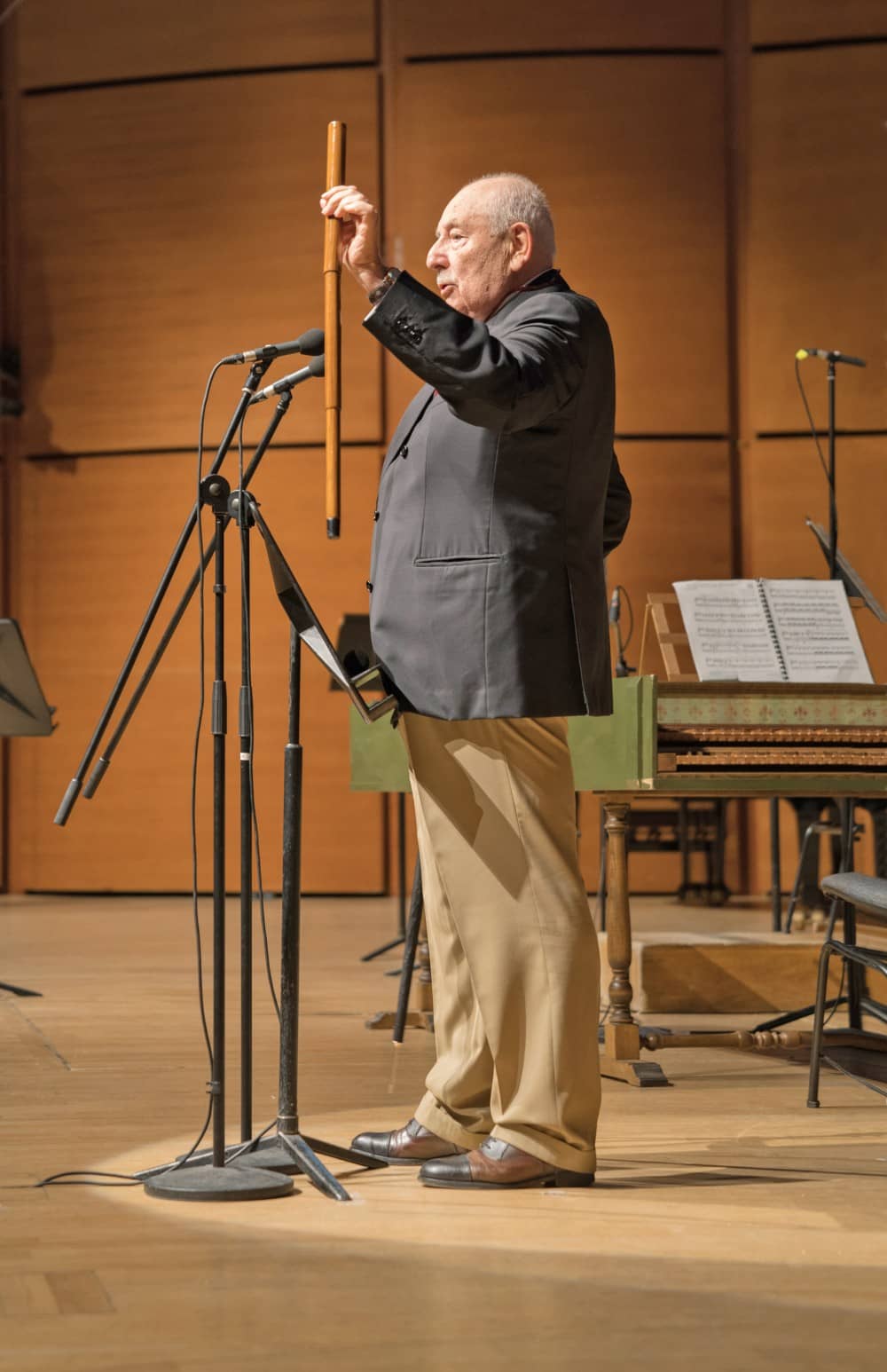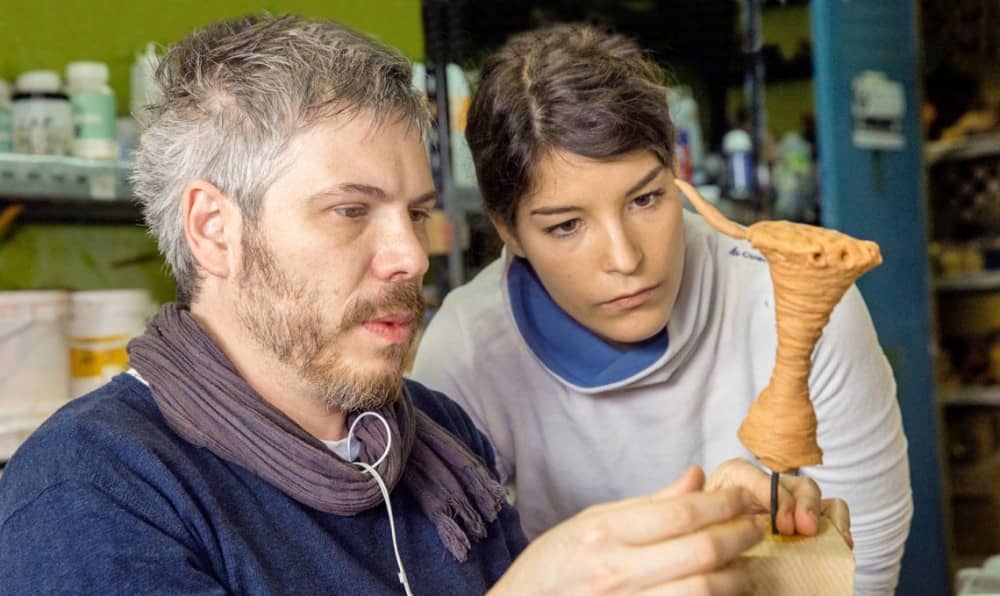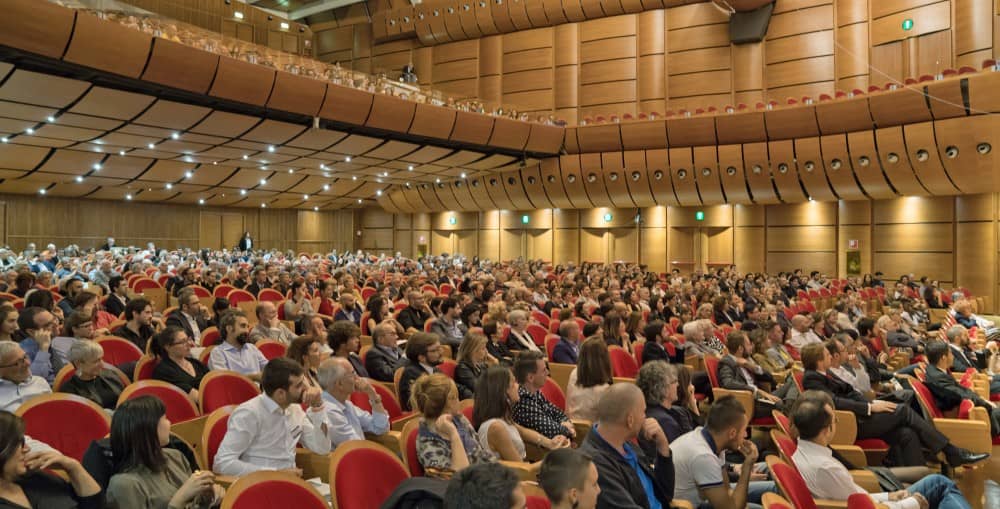Passing the torch
The Cologni Foundation for the Métiers d’Art gave 110 the opportunity to learn the secrets of Italy’s master craftsmen110 young talents selected to take part in the programme “A School, a Job. Training to Excellence”, in which Italy’s top masters craftsmen pass on their trade secrets to the artisans of the future, have been celebrated with a special event in Milan. If you could choose your mentor, someone who has mastered the craft and moulded with passion and dedication the secrets of an invaluable trade, who would you pick? That is the question that some of Italy’s most promising artisans have had the good fortune to ask themselves, thanks to a special project created by the Cologni Foundation for the Métiers d’Art, an institution whose mission is to safeguard the relationship between master and apprentice, where wisdom empowers budding enthusiasm. “What I appreciate most about the project is that we give these young men and women the opportunity to work with someone who knows how to create and, most importantly, how to teach, which is the quality that defines a real master,” says Alberto Cavalli, Director of the Cologni Foundation for the Métiers d’Art. “The fusion of these two elements – the ability to hand down a beautiful profession and the desire to learn and perfect a skill – can radiate a powerful energy!”
The Cologni Foundation created the project “A School, a Job. Training to Excellence” in 2011, and has supervised its progress throughout. The programme gives a select group of talented young artisans the possibility to spend six months side by side with a great master craftsman: the remunerated apprenticeships bridge school leavers into the world of the métiers d’art, offering them the occasion to learn the trade on the job. The programme has grown rapidly thanks to generous donations from foundations, corporations as well as private individuals, who, persuaded of the project’s originality and value, have contributed to it by “adopting” one or more young talents. “In 2012, we extended the project to 10 apprentices, growing to 25 in 2013, 35 in 2014, and 40 in the 2015/2016 edition. The model we developed works very well and has been acknowledged for best practice in Europe,” proudly affirms Alberto Cavalli. The secret to the project’s success lies in the special relationship that develops between master and apprentice. “The master has a dual function: to give and to take away, connect and divide, intervene and stand back, impose and grant, be firm and be flexible at the same time,” explains Gianfrancesco Musella, master tailor and owner of the Sartoria Musella-Dembech, in Milan. “Finding the right balance is not easy, but a good master will know how to create the most serene atmosphere to cultivate his apprentices.” In addition, under this unique programme both parties have to commit to the six-month apprenticeship. “The candidates must be clear about where and under whom they want to train,” explains Alberto Cavalli, “and they also need to build a relationship with the atelier before applying for the apprenticeship.” The candidates are carefully selected by a dedicated committee, which includes professors, experts and members of the Cologni Foundation, determined to pair the very best candidates with Italy’s leading artisans in a wide array of disciplines. “Working with Gianfrancesco Musella changed my life,” says trainee Xiao Zhang. Xiao’s passion for Italian fashion inspired her to leave China to master the art of tailoring in Italy. “When I asked
Gianfrancesco’s father, who is 75, why he still continues to work after 68 years in the atelier, he told me that the craft of a tailor is immense, and that it would take 100 years to learn everything. He is such a great master, a revelation!”

For Alessia Di Giuseppe, from Rome, the most important result of her training at the Leonardo Cruciano Workshop was to learn how to think without boundaries: “The greatest gift was to let me open my mind and experiment. Not only did Leonardo teach me the art of creating special effects for film and theatre, but, most importantly, day by day he helped me grow both artistically and personally.” According to Francesco Paganini, master goldsmith and mentor to Teresa Santoni at the Sacred Art School in Florence, “a good tutor knows how to communicate his knowledge, creating the ideal context where the students can feel protected and encouraged, where they can make mistakes and at the right time receive advice, where they learn to face difficulties without losing heart, and where they can pick up all the secrets of the trade that would otherwise be inaccessible.” The relationship between the master and the apprentice is very special – in this partnership, the apprentice becomes a master in the course of time. “Leonardo and Michelangelo are legendary artists,” continues Paganini, “but would they have been so great without Verrocchio’s and Ghirlandaio’s tutoring and living legacies?” The achievements of the 110 young talents who have participated since 2011 in the programme “A School, a Job” were celebrated in a special event organised by the Cologni Foundation in Milan. On 26 September 2016, in the presence of one thousand guests, their talent and dedication was acknowledged and praised by eminent personalities such as master chef Carlo Cracco and award-winning actress Cristiana Capotondi. To symbolically underline the seamlessness of time and creation from one generation to the next, Milan’s laBarocca Ensemble performed a philological execution of Vivaldi’s Four Seasons. As chairman Franco Cologni said in his inaugural speech: “You are called upon to transform your talent into the ability to make people’s lives richer and more beautiful.” His wish commences in “A School, a Job” and becomes a dream, a project, an achievement.
Photos by Susanna Pozzoli

Mestieri d'Arte n.14, Arts & Crafts & Design n.9
http://mestieridarte.it/mda/


